(Original title: Do you want a Siri smart speaker from Apple? This can really be)
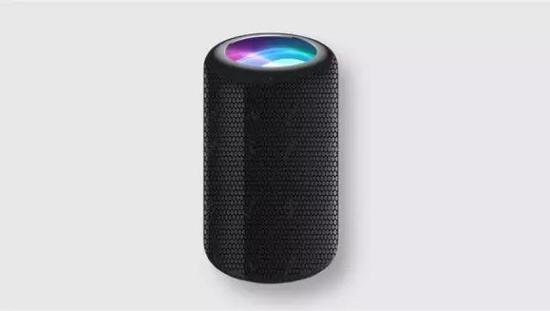
When Amazon, Google and other Internet companies launched their own speaker products, everyone is looking forward to what kind of answer the Apple will answer.
As this year's WWDC conference approaches (June 5th to 9th), there have been more rumors about Apple's new products. One of the more appealing ones is that Apple is likely to launch smart speakers equipped with Siri on WWDC.
According to foreign media AppleInsider broke the news, Taiwan Inventec (Inventec) has received orders for Apple smart speakers. The positive news of Apple's new product information, KGI analyst Guo Minghao also said that Apple's smart speakers will meet with WWDC as soon as possible.
Smart speakers are the next most popular hardware category. When Amazon, Google and other Internet companies launched their own speaker products, everyone is looking forward to what kind of answers Apple will deliver. However, after being released 2 years and a half from Amazon Echo, will Apple still enter the smart speaker field as a "chaser" after 1 year from Google Home?
This article allows us to start from the current situation of smart home development and Apple's existing product line to discuss this Apple's smart speakers do not rely on the message in the end.
HomeKit requires a new control center
In 2017, it was felt that the landing speed of HomeKit, an apple smart home platform, has been accelerated. Not only is HomeKit's list of compatible devices getting longer and longer, but Apple is also actively cooperating with real estate developers. Not too long ago, Apple also demonstrated the HomeKit model partnership with R&F Properties. The completion level has been very high.
Currently HomeKit's home hub is an iOS device (iPhone, iPad) and Apple TV. The control path is the app switch and Siri voice control. But whether it is iPhone, iPad or Apple TV, as the control center of smart home still has some limitations.
They are more like an upgraded version of the "remote control" that centralizes the manipulation of various devices within an app and unifies the interaction logic between different devices. However, this is not enough.

For example, when you want to use voice control to turn off the smart light bulb in your home, you need to find the remote control of your iPhone, iPad, or Apple TV, and then call out Siri for voice control; or, you need to open HomeKit's device-side app to do it. Press OPERATION. When you use Google Home, you wake up with "OK Google" and you have direct voice control.
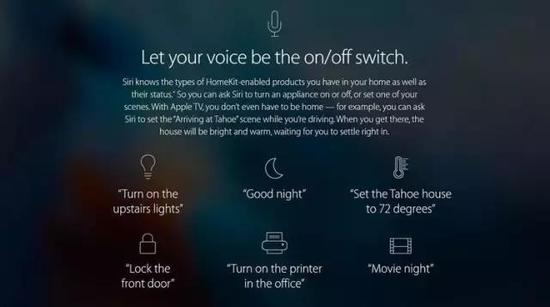
Amazon Echo can also perform similar handsfree operations, which is also the competitiveness of smart speakers. When we are in a more private space, voice is the most direct and natural way of handling, and voice control can be very efficient in the home environment.
Of course, you might say: "Opening Siri's wake-up function on your iPhone or iPad is OK." But limited by volume limitations and the microphone's heading, the wake-up success rate and far-field voice effects can't be used at all. Microphone array smart speakers are comparable, and mobile devices are more sensitive to power consumption in standby mode.
The smart speaker is a natural voice control hardware carrier. It is relatively fixed in the home, and is connected to the socket 7x24 at any time. In addition, smart speakers leave more space for the hardware (to accommodate more microphones, speakers) to get better voice control and playback.
HomeKit needs a better control center, smart speakers would be a good choice. Apple's introduction of smart speakers is definitely not just one more device that can use Siri interaction. It will greatly enhance the experience of HomeKit and better integrate smart devices scattered throughout.
Apple needs more "kicks"
Smart speakers are necessary for HomeKit, Apple's product line will also give it a place?
Recently, Apple released its latest financial report, and one of the data is worth noting: the revenue of “other products†increased by 31% compared to the same period of last year, and Apple CEO Tim Cook said Apple Watch, AirPods and Beats’ revenue for the past 4 quarters. It is already comparable to the size of a top 500 company.

Although the iPhone is still the focus of the company's revenue, Apple is trying to find more growth engines (in fact, the effect is obvious) to get rid of excessive dependence on a single product. Moreover, it is also necessary to maintain the attention of the public through new categories and help new technological achievements (such as artificial intelligence).
The smart speaker is a 3C product category with a relatively low market saturation, and it is also an area that Apple has never set foot in. Therefore, it will be a category with a very low repetition rate, and there will be a lot of room for development in the future. What's more, the work of early market education has been completed by Amazon Echo and Google Home, and Apple's resistance to new products will be reduced.
Based on some of the above analysis, we believe that Apple's "motivation" for the introduction of smart speakers is very good, and "conditions" are even less of a concern.
Prior to this, Siri has successively landed on the iOS, watchOS, tvOS, and macOS platforms. There is no technical problem with accessing smart speakers (said iOS customization). Audio itself is one of the areas that Apple is good at. Don't forget that there are Beats under Apple's name. It is no exaggeration to say that for the manufacture of a smart speaker, Apple would design a beautiful shell to package the existing technology.
Therefore, we believe that the news leaked is definitely not just a "catching shadow." The possibility of Apple launching a smart speaker is still very large. Even if WWDC does not make its appearance, there are reasons to believe that it will be seen in the future.
What are the advantages of Apple?
Since Apple has a relatively high probability of launching smart speakers, we may wish to synthesize some information currently disclosed by foreign media and infer what this smart speaker might look like.
First of all, the appearance of Apple's smart speakers will be close to the "round" shape of the Mac Pro, surrounded by a metal grille outside, and an interactive area (touch) at the top. Compared to the compact Google Home, it is closer in size to the size of Amazon Echo.
 Image Source: MacRumors
Image Source: MacRumors
According to information disclosed by MacRumors, the foreign media, Apple's smart speakers will be more "exquisite" in terms of sound quality, and will use a combination of a bass unit and seven tweeters. How to really use this "luxury" configuration, sound quality is far more than Google Home (1 unit + 2 passive diaphragm) and Amazon Echo (2 units) should not be a problem. In addition, it is also said that Apple's smart speakers will use some Beats technology.

In terms of basic functions, the Apple Smart Speakers are in the same direction as Google Home and Amazon Echo. By accessing Siri, they provide various voice answering services (entertainment/tool ​​attributes) to control various smart devices (tool attributes) at home. Supporting their own Apple Music, AirPlay should be no surprise, linked with Apple TV can also achieve similar Google Home + Chromecast "push" effect.
Because it is a completely new product line, the name of Apple's smart speakers is still difficult to predict. However, compared to Siri Smart Speaker, we prefer that Apple will give it an "Apple prefix". According to Apple’s pricing strategy, it is no surprise that Google Home ($129) and Amazon Echo ($179.99) are more expensive.
The "first mover" Amazon Echo has already communicated with a large number of third-party applications. When we participated in the CES show at the beginning of the year, we discovered that it has spread all over the venue. Google Home, through its own advantages in productivity tools and hardware (Nest, Chromecast), can also provide a very "unified" experience. Where is Apple's smart speaker competition?
"Self-awareness" (self-awareness) is probably a "killer" for Apple's smart speakers.
According to foreign media CNET reports, Apple smart speakers will be equipped with a built-in camera, you can identify the user's identity. More importantly, the camera can serve as a "monitoring environment." For example, when it finds out that the owner is returning home, it will automatically broadcast your favorite podcasts, adjust the lighting to the most suitable brightness, etc. Even the "moving mouth" will not be needed.
The technical basis behind this speculation is that Apple had previously acquired several facial recognition/artificial intelligence companies (including Faceshift, Emotient, etc.), but products that have not yet landed, smart speakers will become a good carrier. Face recognition enables more competitive features.
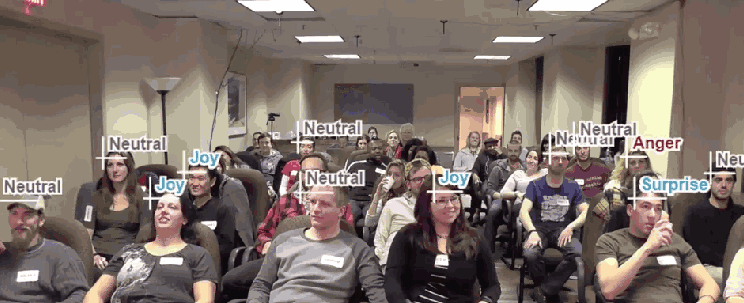 Image credit: Business Insider
Image credit: Business Insider
If we say that "face recognition" sounds far away, let's talk about the advantages Apple has.
Currently, Google Assistant for Google Home access only supports English voice manipulation, and Alexa accessed by Amazon Echo only supports English and German. In contrast, Siri has been able to understand 21 languages ​​(including some dialects), which makes Apple's smart speakers more "applicable."
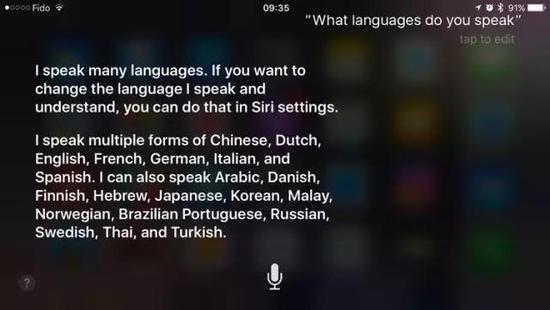
In addition, due to well-known reasons, both Google Home and Amazon Echo have some troubles in China. In contrast, most of Apple's hardware and services are still "unimpeded" in China. It is believed that if Apple's smart speakers are sold in China, they will be more dependent on them.
Do not forget that Apple also has a self-developed W1 chip. Previously it was used in wireless headset products such as AirPods, resulting in lower power consumption and a more convenient pairing process. In fact, there are still many potentials of this wireless chip that have not been excavated, and look forward to its performance on Apple's smart speakers.
In summary, as Apple's first speaker category, it should have a good appearance and excellent sound quality, plus access to Apple's own services and equipment, can provide some personalized features, I believe it can Have a place in our living room. Let us look forward to the arrival of WWDC in June.
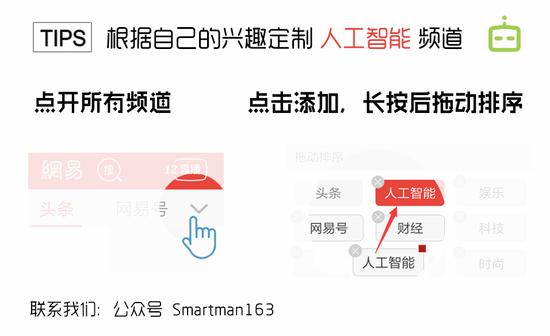 燑br>
燑br>
The Cigfun 2000 puffs disposable e-cigarette has a 6ml oil capacity, 850mAh battery. It is an easy to carry, portable e-cig. Adopt mesh coil vaporizer, it is powerful and maximum flavor, bring natural, purest taste.
Cigfun disposable vape pen is produced in ISO9001, GMP workshop, thus the quality can be guaranteed, safe and healthy than refillable vape pod.
Disposable e-cigarettes are compact, light weight and easy to carry, the auto draw system, no button needed, just open the package, near to your mouth, then smoke.
Cigfun disposable vape bar has nic salt 2%, 3%, 4%, 5%, meet your every need.
and amazing flavors include kiwi ice, apple ice, gummy bear, green apple, bubble gum, cool mint, Strawberry ice Cream, Peach Ice, Coconut melon, Energy Strawberry, Sour Apple, Kiwi guava, Watermelon Mango Peach, Banana Milk.
Axiswell works as vape manufacturer as well as distributor, always engaged in wholesale quality, safe, cheap price puff bar to vapers.
Cigfun Vapes Disposable,Disposable Vape Pod,Cigfun 1500 Puffs,Cigfun 2000 Puffs Vape,Cigfun 2500 Puffs Vape Pod
Shenzhen Axiswell Technology Co., Ltd , https://www.vapingera.com
